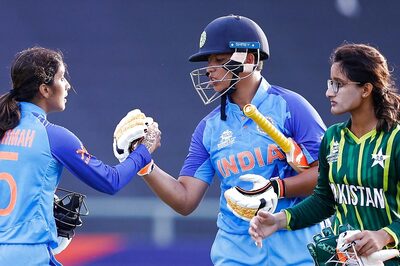
views
Lucknow: Across Uttar Pradesh on Tuesday, newly married couples will mark World Population Day by receiving contraceptive kits and a lesson in family planning by the Yogi Adityanath-led state government. After the Union health ministry announced Mission Parivar Vikas in September for 145 districts, spread across seven states, with the highest total fertility rates (TFR), the UP government is rolling it out in its 57 districts on Tuesday.
From Bahraich to Balrampur, Banda, Gonda, Etah, Sitapur, etc., ASHA workers — the women who make the India’s largest volunteer health force — will start distributing kits with condoms, emergency pills, a new range of contraceptive pills called Chaya and the injectible contraceptive Antara that prevents pregnancies for three months.
“These districts have a TFR higher than the national average and we are taking this on in a big way,” said the state minister for women and child development, Rita Bahuguna Joshi. “It’s still a taboo to talk about sex and contraception. Even if couples don’t want to have children early, they don’t know how to talk about it. They are shy about buying contraceptives from the market.”
According to Joshi, the nayi pahal kits, based on guidelines given by the central health ministry, will act as a starter kit for couples, along with education on maintaining gaps between children.
India’s national total fertility rate, which means the total number of children born or likely to be born to a woman in her lifetime if she were subject to the prevailing rate of age-specific fertility in the population, stands at 2.2. Mission Parivar Vikas focusses on districts with TFR above 3, where the government’s population control measures did not work as well as in others. UP, with 204.2 million people and 57 problematic districts comes first, with Bihar’s 37 districts a distant second. Areas such as Balrampur, Shrawasti, Badaun, Sitapur, Hardoi, all have a TFR above 4.

While many Hindu religious leaders have exhorted Hindu women to produce more babies, in the recent past, the Yogi government at least, cannot ignore the dire numbers of population density across UP.
“I am glad that governments are finally investing in newly married couples but it cannot just be limited to a kit,” said Poonam Muttreja, executive director, Population Foundation of India. “People also need information, an understanding of why it’s important how early or late in life you have children, and social change. They need counselling and to be given confidence to delay children.”
To that end, said Alok Kumar, UP’s mission director for the National Health Mission, ASHAs and auxiliary nurse midwives (ANMs) underwent a training programme for months, as did medical officers at the state and district levels, on how to counsel couples, and their families who might also be pressuring newlyweds to have children early.
“We are also hoping that with the injectable contraceptive we will be able to give women more of a choice, that they will be able to use without their in laws knowing,” said Kumar, acknowledging that women don’t often control their bodies, when and how many children they will have.
Men need to be counselled, as Muttreja pointed out, as they largely determine the family’s size. “How much will ASHAs be able to talk to men?” she asked.
“We do have basic male workers, and there is a training programme for general nurses and midwives on male contraceptives, but yes we should bring men into the fold,” said Kumar. One way to do that, he said, could be through a general health awareness programme on non-communicable disease and other health issues, ongoing in 300 villages, ASHAs are also incentivised to encourage couples to use all contraceptives, and not just to get women sterilised, he added.




















Comments
0 comment